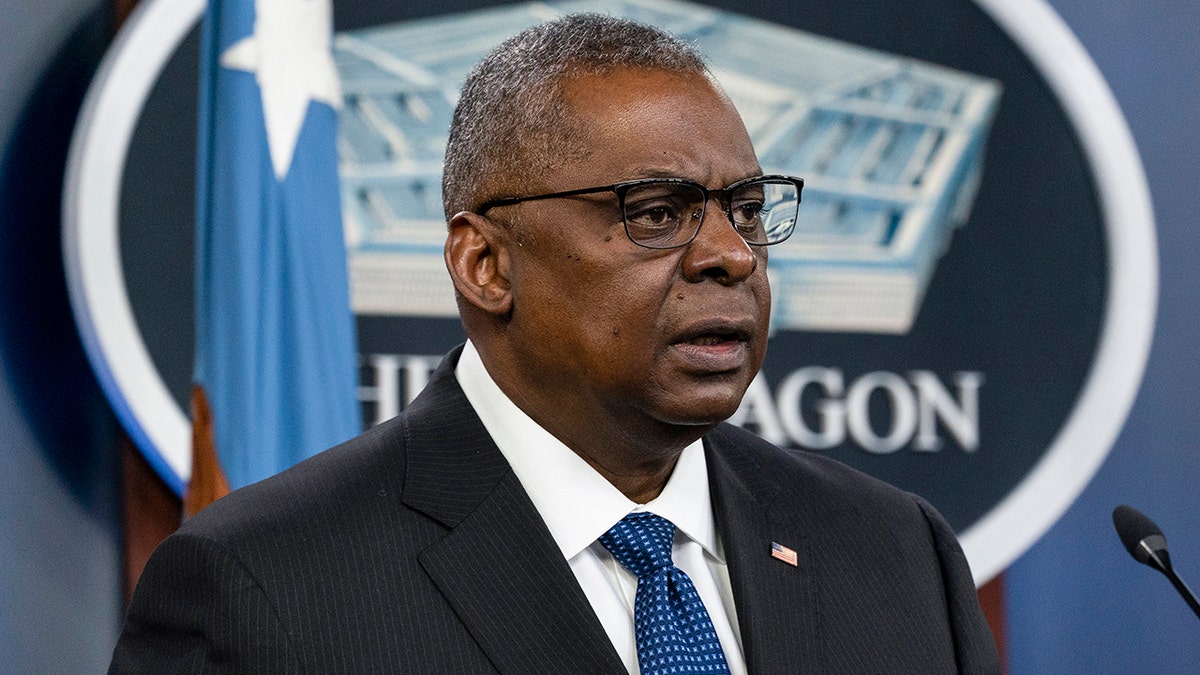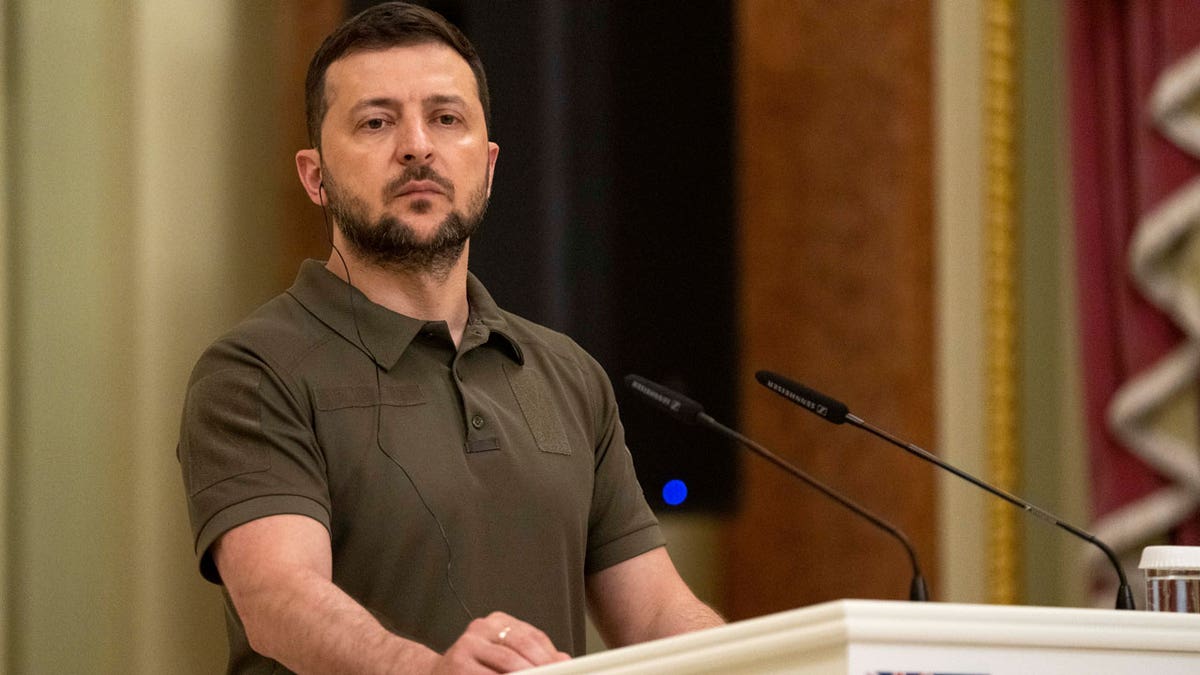Russians setting up for a 'terror campaign' in Ukraine: Brent Sadler
The Heritage Foundation's Sr. Research Fellow Brent Sadler joins 'Fox News Live' to discuss the missile strike in Poland and Russian strategies in the war on Ukraine.
The Pentagon this week refused to provide key details about the Biden administration’s request for an additional $37.7 billion in funding to help Ukraine defend itself from Russia’s invasion – a request that would put total U.S. taxpayer support to Ukraine above $100 billion since the war started in February.
The White House asked for more money last week in a letter from the Office of Management and Budget to House Speaker Nancy Pelosi, D-Calif. That letter explained that of the $37.7 billion it wants, $21.7 billion would go toward "equipment for Ukraine, replenishment of Department of Defense stocks" and other support to Ukraine.
However, when asked Tuesday how much of that amount would be directed toward replenishing U.S. stocks, the Pentagon declined to answer.
"I would not be able to tell you how much of that $21.7 billion is going back to replenishment," Sabrina Singh, deputy Pentagon press secretary, said when asked. "I just wouldn’t be able to do that from here."
US POISED FOR SLOWDOWN IN HIGH-END MUNITIONS DELIVERIES TO UKRAINE

The Pentagon, led by Secretary of Defense Lloyd Austin, is not saying how much money it needs to replenish U.S. weapons stocks. (AP Photo/Alex Brandon)
When asked if she could "take the question" back to the Pentagon and come back with an answer, Singh said she would not.
"I am not going to take the question because I'm answering your question," he said. "I'm not going to be able to itemize that out right now. I just don't have a number or a dollar figure for you right now on what that looks like, and I don't think that's something that we would broadcast from here, or at least something that I could broadcast from here at this time."
The administration will most likely have to provide more details to Congress before legislation can be passed authorizing more Ukraine spending. For example, the first Ukraine funding bill sought by the administration at the start of the war authorized $40 billion in spending. Of that amount, $6 billion was used to provide weapons, equipment, logistics support, training and other direct military aid to Ukraine, and $9 billion went toward replenishing U.S. weapons stocks.
Lawmakers and others are growing increasingly interested in funding to replenish U.S. weapons stocks, after the U.S. has been depleting its own supplies to aid Ukraine.
MOSCOW CONDEMNS US RESPONSE TO ALLEGED WAR CRIMES AGAINST RUSSIAN SOLDIERS IN UKRAINE

President Biden is asking for another $37.7 billion in aid to Ukraine, but some of that will go to restoring U.S. munitions. (REUTERS/Evelyn Hockstein)
In October, sources who track U.S. munitions supplies said it will become more and more difficult to send high-end weaponry like HIMAR rocket launchers, Javelin anti-tank missiles and others because domestic supplies are so low.
In early October, Sen. Tom Cotton, R-Ark., proposed legislation aimed at making sure the U.S. restores its depleted stocks and kickstarts production of these items in the U.S.
"The Russian invasion of Ukraine has shown that the United States’ stockpile of munitions is dangerously low. We must reinvest not only in the munitions critical for the defense of America, but also in a workforce that can build these weapons to ensure our military’s readiness," Cotton said in October.
Some Republicans have complained that the large spending bills being used to support Ukraine are filled with non-military items that raise their cost, and the White House request includes billions in non-military spending.
For example, within the White House’s latest request for $37.7 billion is a $14.5 billion request that would fund additional security aid to Ukraine that would be run by the State Department, and food security aid run through the U.S. Agency for International Development.

Ukrainian President Volodymyr Zelenskyy will have received more than $100 billion in U.S. support if the latest Biden administration request is approved. (AP Photo/Nariman El-Mofty, File)
The White House also wants another $626 million for "nuclear security support" in Ukraine and for modernizing the Strategic Petroleum Reserve to "reduce domestic energy costs." The White House says most of that money would be used to build back the oil reserve.
Finally, the White House wants another $900 million to provide health care services to Ukraine through the Department of Health and Human Services.
CLICK HERE TO GET THE FOX NEWS APP
"We must continue to support the people of Ukraine as they defend their sovereignty and stand resolute in the face of Russia’s brutal war," the White House said. "Together, with strong, bipartisan support in Congress, we have provided significant assistance that has been critical to Ukraine’s success on the battlefield—and we cannot let that support run dry."














































